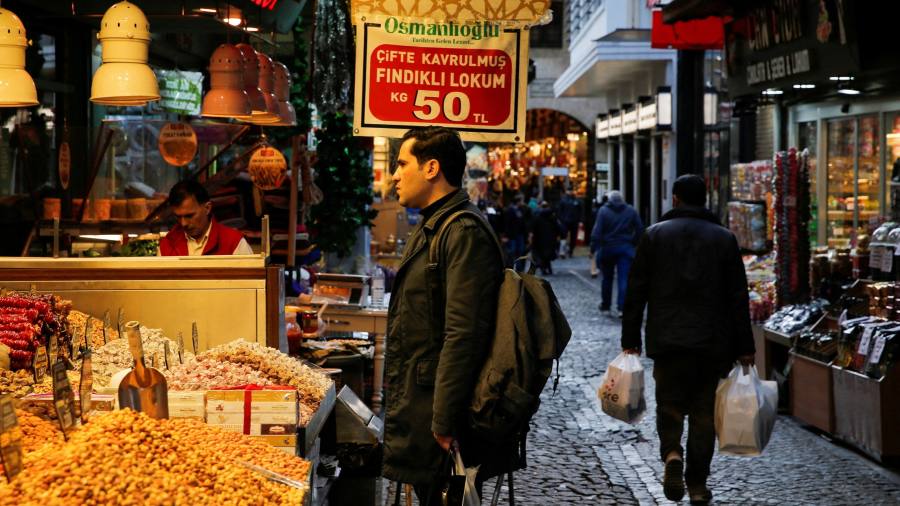Turkey’s central bank brings low-rate era to close with 6.5 percentage point rise
Receive free Turkish economy updates
We’ll send you a myFT Daily Digest email rounding up the latest Turkish economy news every morning.
Turkey raised interest rates for the first time since 2021 and vowed to restore a “free foreign exchange regime” as the country’s new economic leadership shifts away from policies that have sent inflation soaring and investors fleeing.
However, the scale of the increase fell short of expectations of more aggressive action to tackle price pressures, with the lira hitting another record low against the dollar, at 24.5, following the decision.
The central bank, helmed by newly-appointed governor Hafize Gaye Erkan, on Thursday lifted its benchmark one-week repo rate to 15 per cent from 8.5 per cent.
Local business executives and international investment banks had hoped for a bigger increase in borrowing costs to around 20 per cent.
“The rate hike is below expectations, but can be considered as the first of several steps,” said Enver Erkan, chief economist at Istanbul-based brokerage Dinamik Yatırım Menkul Değerler.
Central bank watchers have been betting on a shift in stance from the low-rate policies pushed by President Recep Tayyip Erdoğan since May’s presidential election, which Erdoğan won.
Their optimism has been fuelled by the president’s appointment of Mehmet Şimşek, an investor-friendly former deputy prime minister, as finance minister and Erkan, a former Goldman Sachs executive, as central bank chief.
Şimşek said after Thursday’s rate decision that Turkey’s economic policies would focus on “sustainable” growth achieved through “rule-based” monetary and fiscal policies. He also said a “free foreign exchange regime” would be vital to luring back investors who have deserted Turkey over recent years.
The country has spent at least $24bn this year defending its currency through state-owned banks, and enacting other measures to push businesses and consumers away from holding and trading foreign currency.

Many economists say Turkey’s economy is overheating as a result of a sustained period of low interest rates and a barrage of government giveaways ahead of last month’s election.
Rate-setters hinted at further increases in borrowing costs in the coming months, saying they would tighten policy “as much as needed in a timely and gradual manner until a significant improvement in the inflation outlook is achieved”.
Still, former central bank chief economist Hakan Kara said Thursday’s decision “signalled that the priority of the authorities will be growth rather than disinflation in the near term”. He added that, although the central bank had vowed to tighten policy as much as needed, “we are in a period where actions speak louder than words”.
The central bank is hoping to tame a painful cost of living crisis, with inflation running at nearly 40 per cent. The policies pursued by Erdoğan, a staunch opponent of high borrowing costs, have also sent the lira tumbling and added to serious imbalances across the $900bn economy.
While Thursday’s move marked a shift towards more conventional policies, investors warn that Erdoğan, who has led Turkey for two decades, has been down this path before only to shift course. Former central bank governor Naci Ağbal was sacked in early 2021 just months into his term after boosting borrowing costs.



